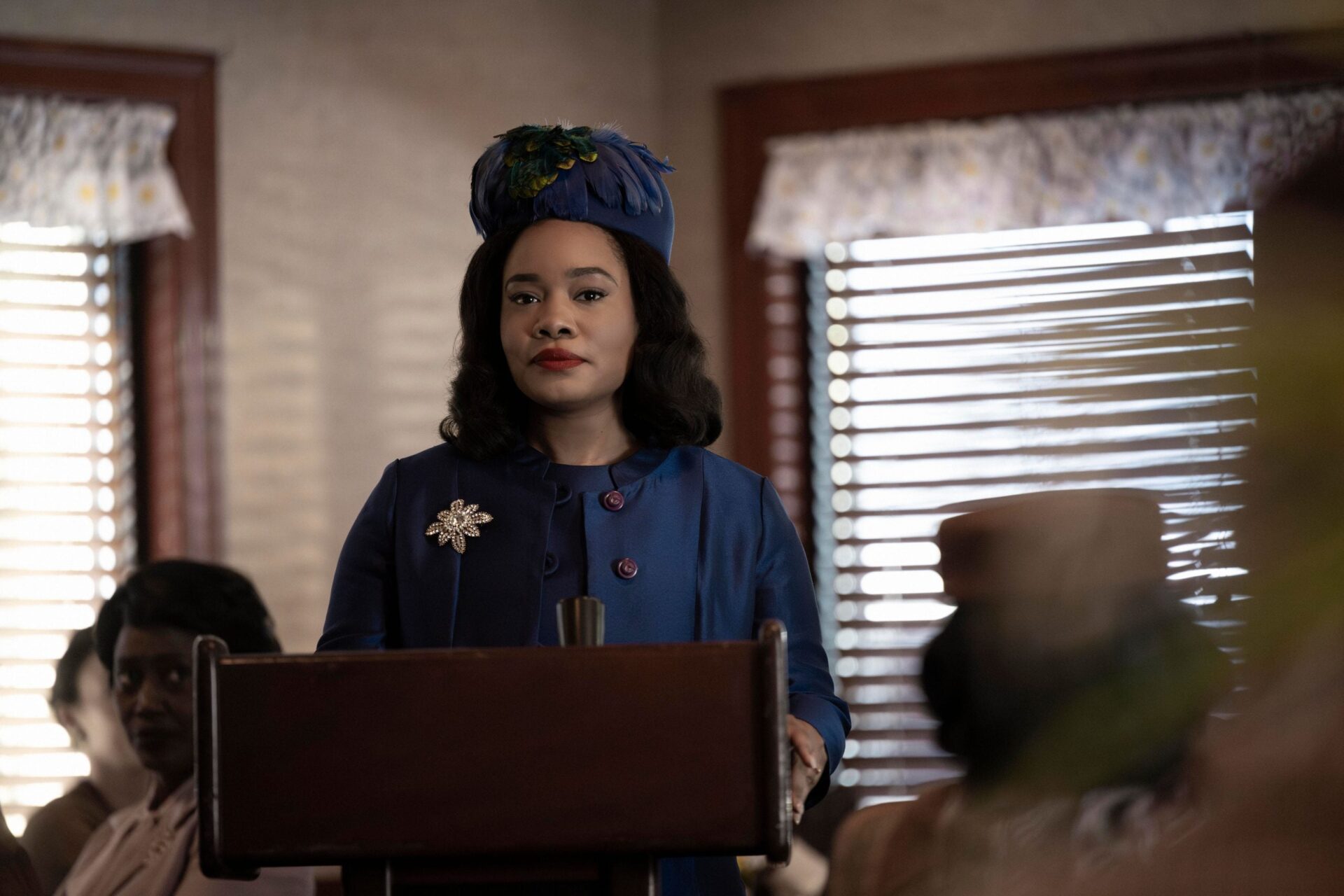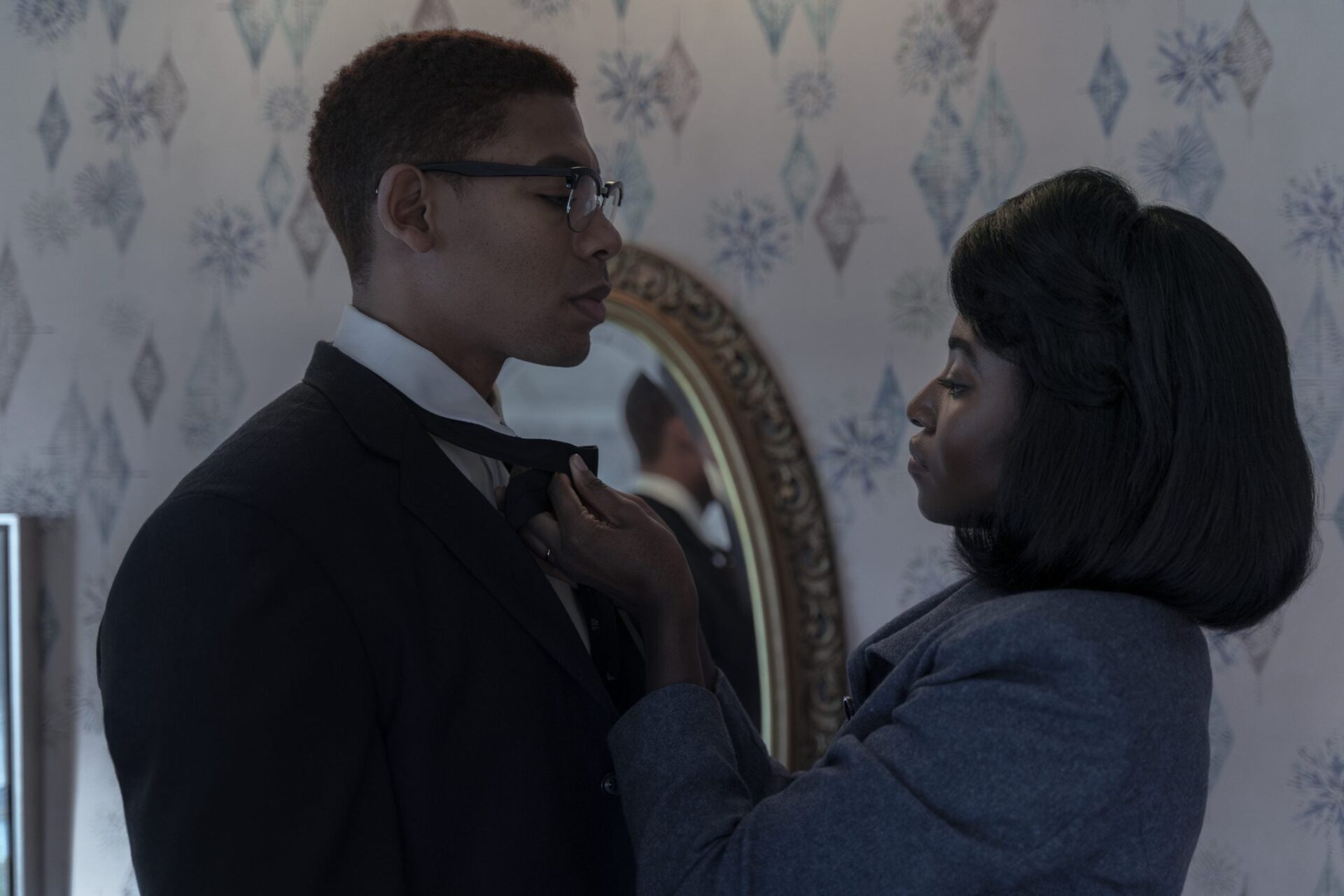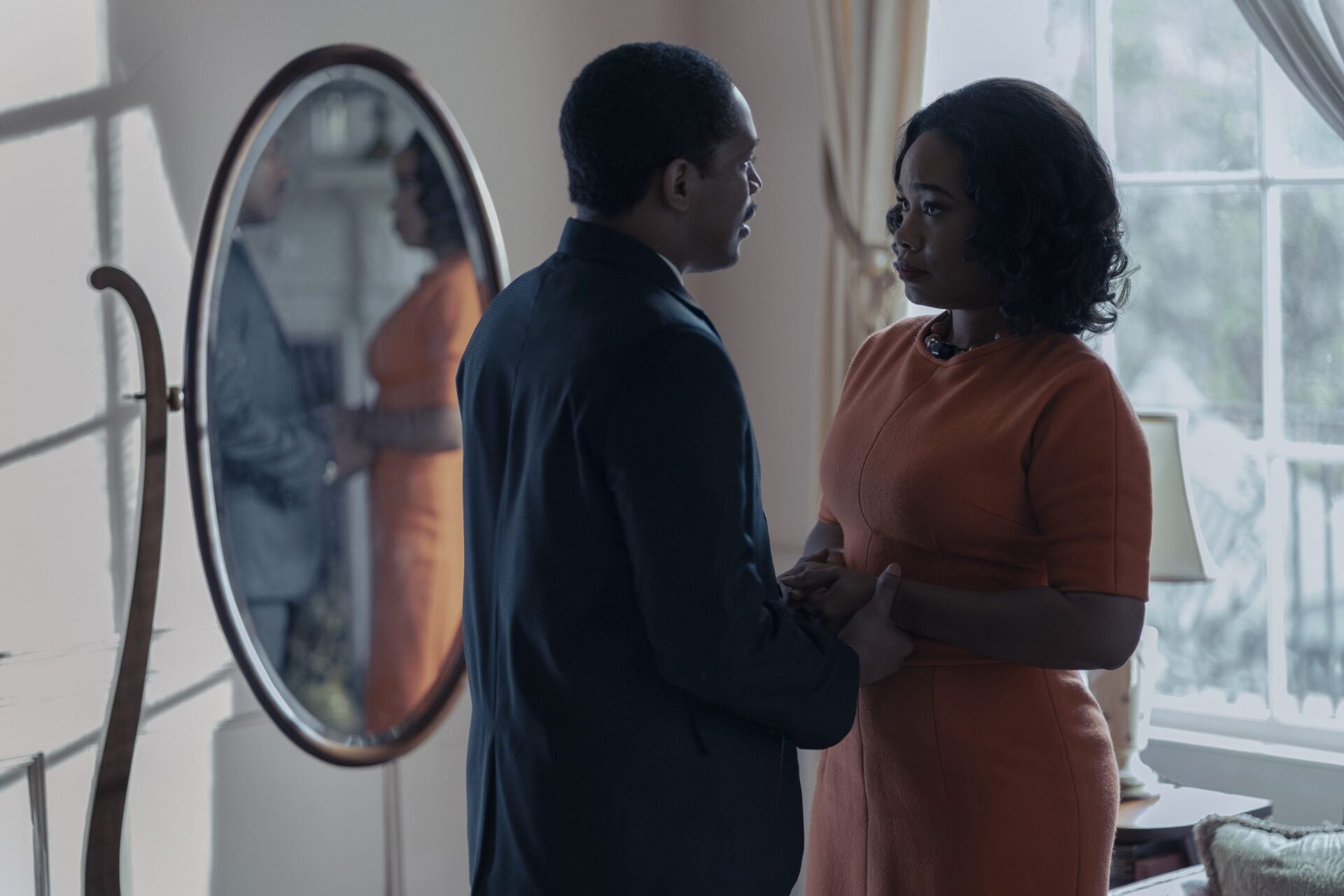 Coretta Scott King, played by Weruche Opia, gives a speech in GENIUS: MLK/X By Paige C. Johnson ·Updated January 31, 2024
Coretta Scott King, played by Weruche Opia, gives a speech in GENIUS: MLK/X By Paige C. Johnson ·Updated January 31, 2024
National Geographic’s acclaimed series, Genius, is set to delve into the pivotal lives of Dr. Martin Luther King, Jr. and Malcolm X in its upcoming fourth season. Premiering on February 1st at 9pm on National Geographic and streaming the next day on Hulu and Disney+, this Emmy® award-winning anthology unravels the formative years, groundbreaking achievements, conflicting ideologies, and significant personal relationships that defined these two iconic figures. While King advocated for racial equality through nonviolent means, Malcolm X passionately argued for Black empowerment, identity, and self-determination. Although they only met once, these influential leaders, alongside their formidable wives, became symbols of the Civil Rights era and the struggle for racial and economic justice.
In the annals of history, the roles of Coretta Scott King and Betty Shabazz often stand in the shadow of their iconic husbands. However, their individual stories are a testament to the enduring strength, love, and resilience of Black women in the face of adversity. As unwavering pillars of the civil rights movement, they each made profound sacrifices, overcoming personal tragedy and societal challenges, to leave an indelible mark on the world. Coretta Scott King, the wife of Dr. Martin Luther King Jr., was not only a steadfast supporter of her husband’s mission but also an activist in her own right. Following Dr. King’s assassination, Coretta continued his work, establishing the Martin Luther King Jr. Center for Nonviolent Social Change and tirelessly advocated for equality, women’s rights, LGBTQ rights, and world peace, solidifying her as an influential leader in her own regard. Through her strength and perseverance, she carried on Dr. King’s legacy while carving out her own path as an advocate for peace and equality.
 Malcolm X, played by Aaron Pierre, and Betty X, played by Jayme Lawson, in GENIUS: MLK/X. (National Geographic/Richard DuCree)
Malcolm X, played by Aaron Pierre, and Betty X, played by Jayme Lawson, in GENIUS: MLK/X. (National Geographic/Richard DuCree)
Similarly, Betty Shabazz, wife of Malcolm X, exemplified unparalleledresilience and unwavering dedication to the civil rights movement. Following her husband’s assassination, she raised their six daughters as a single mother and pursued higher education, ultimately earning a doctorate in education. She became a prominent educator and advocate for civil rights, women’s rights, and racial justice. Betty co-founded the Malcolm X Foundation and remained committed to empowering marginalized communities, particularly African American youth. Shabazz’s journey of personal growth and her unyielding determination to uplift her community stand as a testament to her enduring spirit and resilience in the face of profound loss and hardship.
In the years after the passing of their husbands, King and Shabazz formed a lifelong friendship through letters, phone calls, and visits. In a 2020 Live Discussion hosted by GirlTrek, with Dr. Bernice King and Ilyasah Shabazz, Dr. King shared how Betty Shabazz had become a best friend to her mom as they shared many similar experiences. At Betty’s Shabazz’s funeral in 1997, King along with Myrlie Evers-Williams, widow of assassinated NAACP leader Medgar Evers, referred to their friendship with Shabazz as the third member in their sisterhood of sorrow. King, Shabazz, and Evers formed a bond where they could share their burdens, triumphs, and the complexities of their public and personal lives, while also strategizing, collaborating, and supporting one another’s efforts in advancing the mission of a more just and equitable society. Their resilience in the wake of unimaginable loss and adversity serves as a testament to the strength and endurance of Black women during the Civil Rights Movement.
Black women served pivotal yet unrecognized roles in the Civil RightsMovement. Rosa Parks, Ella Baker, Mahalia Jackson, Fannie Lou Hammer, among countless others, spearheaded crucial initiatives, coordinated protests, leveraged platforms, organized community events, and fundraised to support the movement’s mission. Their leadership and activism were not without challenges. Black women at the forefront of the Civil Rights Movement faced the intersectionality of racism and sexism, often finding themselves marginalized within the movement they helped propel forward. Despite these challenges, they persevered, carving out spaces for themselves and making their voices heard, leaving indelible contributions to history.
 Martin Luther King Jr., played by Kelvin Harrison Jr., and Coretta Scott King, played by Weruche Opia, in GENIUS: MLK/X. (National Geographic/Richard DuCree)
Martin Luther King Jr., played by Kelvin Harrison Jr., and Coretta Scott King, played by Weruche Opia, in GENIUS: MLK/X. (National Geographic/Richard DuCree)
In honoring the legacies of Dr. Martin Luther King Jr. and Malcom X, we also recognize the paramount roles of their wives’, Coretta Scott King and Betty Shabazz, and countless Black Women and their immeasurable contributions to the impact and success of the Civil Rights movement. This Black History Month, we say thank you to the known and unknown Black women of the Civil Rights movement for their love, sacrifice, and resilience.
Genius: MLK | X premieres weekly beginning Feb. 1 on National Geographic at 9/8c and will stream the next day on both Disney+ and Hulu. Watch here.
The post Unveiling the Strength of Coretta Scott King and Betty Shabazz: Love,Sacrifice, and Black Women’s Resilience appeared first on Essence.
